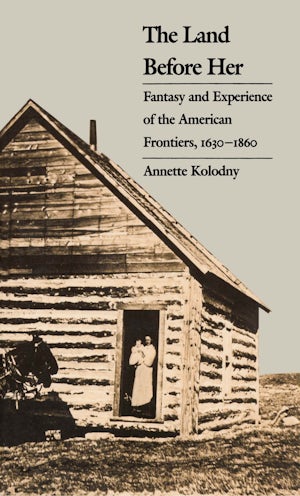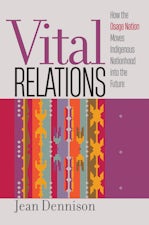The Land Before Her
Fantasy and Experience of the American Frontiers, 1630-1860
By Annette Kolodny
314 pp., 6.125 x 9.25
-
Paperback ISBN: 978-0-8078-4111-2
Published: February 1984 -
E-book EPUB ISBN: 978-1-4696-1955-2
Published: July 2014 -
E-book PDF ISBN: 979-8-8908-8665-1
Published: July 2014
Buy this Book
- Paperback $42.50
- E-Book $29.99
For Professors:
Free E-Exam Copies
Awards & distinctions
1986 Emily Toth Award, Women's Caucus of the Popular and American Culture Associations
About the Author
Annette Kolodny is former Dean of the College of Humanities at the University of Arizona. She currently teaches courses on ecocriticism and the American frontiers at the University of Arizona.
For more information about Annette Kolodny, visit
the
Author
Page.
Reviews
"This is not only a masterful work of scholarship and organization, but a much-needed counter-balance to the much-articulated myth of the American Adam. . . . In redeeming this material from oblivion, Annette Kolodny permits us a privileged look at roots we may otherwise never have known we had."--Margaret Atwood
"[Kolodny's] ambitious study of women's changing responses to the experience of settling the American continent radically revises our understanding of both American history and American literature. . . . Again and again, her sensitivity to issues of gender has led her to see familiar texts in dazzlingly original ways."--Journal of English and Germanic Philology
"Masterful . . . . It reads like a good detective story, and appeals to the same instincts for discovery of the hidden, for problem solving. In redeeming this material from oblivion, Annette Kolodny permits us a privileged look at roots we may otherwise never have known we had.'




